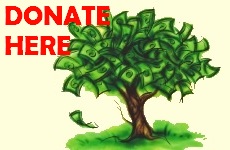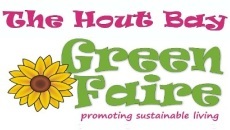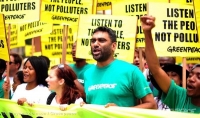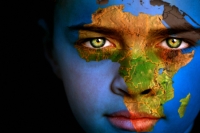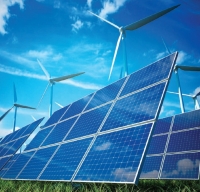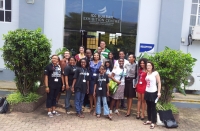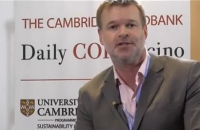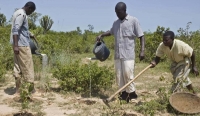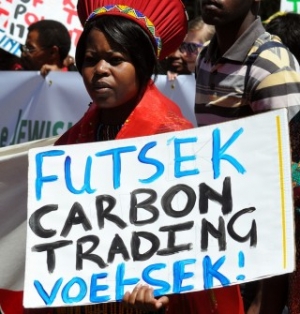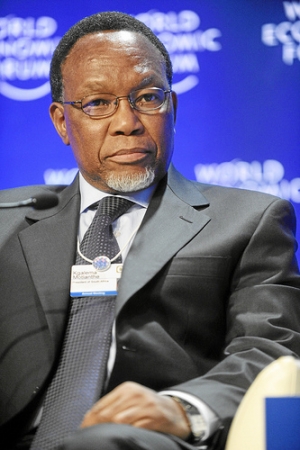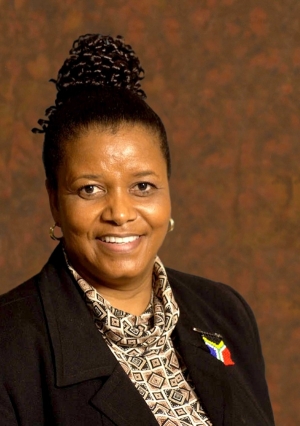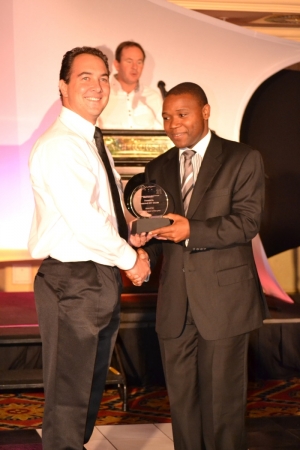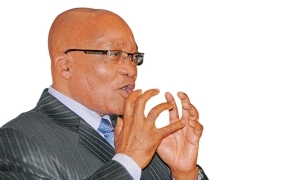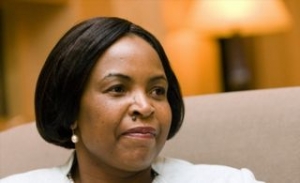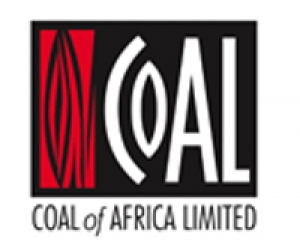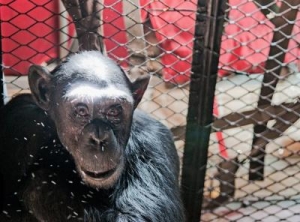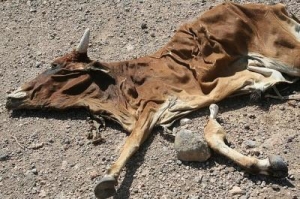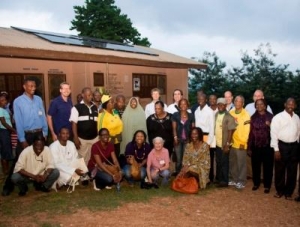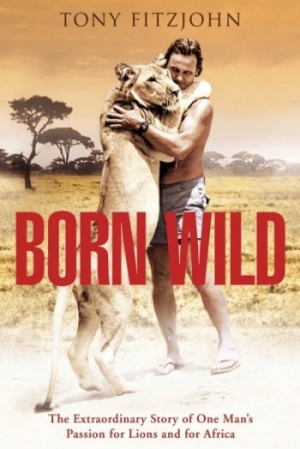As the first week of negotiations at the so-called “African COP 17” drew to an end and the final week begins, it is perhaps a poignant time to ask: What could possibly be meant by calling COP 17 “an African” COP?
South Africa and European Union nations earlier this week announced a massive renewable energy initative, and this was launched in Durban on Wednesday. The South African Renewables Initiative (SARi) is in a bid to scale up and secure long-term funding to enable the growth of the renewable energy industry in South Africa.
As countries such as the US, Canada, Russia and Japan push to delay agreement to a legally binding framework for climate change to 2020 - a delay which will likely push our ability to reduce climate change to 2 degrees Celsius out of our hands – it is either sadly ironic or apt (I can’t decide) that COP17 commemorated Youth and Future Generations Day today. The focus of many of the commemorations was on the role that youth had to play in the future of climate change negotiations, and how climate change would affect both today’s youth and future generations.
COP17: The Cambridge Programme for Sustainability Leadership (CPSL) is running a series of high-level briefings at their Oasis of Fresh Thinking with people who will be commenting on the negotiations as they unfold and giving a business perspective on the leadership challenges for businesses in the sustainability arena.
South African president Jacob Zuma has declared his intention to have a decision on Agriculture at the UN COP17 climate negotiations in Durban; while the World Bank is promoting so-called “Climate Smart Agriculture” and carbon offsets as the future of African agriculture and climate solutions.
Africa’s first carbon-neutral bank, continued to demonstrate its commitment to water sustainability as a key participant and host of the Water Roundtable side event at the COP 17.
Over 100 civil society organizations from Africa and around the world sent a letter earlier this week to African negotiators attending the UN global climate talks in Durban, calling for them to reject efforts to place agricultural soils within a carbon market.
South Africa’s Green Economy Accord was launched at the COP17 talks in Durban today. The Accord, one of the most comprehensive social pacts on green jobs in the world, builds a partnership to create 300 000 new jobs by 2020, in economic activities as diverse as energy generation, manufacturing of products that reduce carbon emissions, farming activities to provide feedstock for biofuels, soil and environmental management and eco tourism.
Edna Molewa, Minister of Water and Environmental Affairs, issued the following statement at the UNFCCC COP17 press briefing on Tuesday 29 November.
Powertech IST Otokon was awarded the Energy Project of the Year at the Southern African Association for Energy Efficiency’s (SAEE) Awards Ceremony last night.
The President of the Republic of South Africa, Jacob Zuma has officially opened the much anticipated COP 17/CMP7 conference held at the Albert Luthuli International Convention Centre. In his speech, he stresses the need for all involved parties to strive to find a solution, here in Durban.
African women and children constitute the majority of the continent’s poor and play a vital role in food production in Africa. Therefore they will be the hardest hit by famine due to climate change, if they are not effectively prepared and food security issues are notaddressed properly. The continent will suffer as a result.
The coalition of civil society organisations challenging the authorisations given to mining company Limpopo Coal (Pty) Ltd’s proposed Vele colliery outside the Mapungubwe National Park and World Heritage Site, has resolved to commence direct formal negotiations with Limpopo Coal and its holding company Coal of Africa (CoAL).
The iPhepa Bead project was recently started as a community empowerment project with a number of self-help groups of mostly women and youth from the KwaZulu-Natal Midlands of South Africa who are repurposing paper from glossy magazines, boxes, calendars, brochures and other paper, creating beauty out of waste.
My reason for choosing the 'Coffee-Can Drum' craft is; when I observe a young child banging on different surfaces two things becomes very clear; tapping on things comes very natural to us and forms part of how we discover this world.
Parts of Somalia, Kenya and Ethiopia are facing one of the worst droughts for 60 years, and around 20 million people are desperately in need of food, clean water and basic sanitation.
Access to cleaner, more affordable energy for their people is a current priority for many African nations.
Conservationist Tony Fitzjohn's story of the 18 years he spent working with wildlife icon George Adamson and his struggle to rescue and rehabilitate Mkomazi, a 1 500 square mile wasteland in Tanzania, comes at a time when South Africa's conservationists are facing one of their biggest challenges, namely, the poaching of hundreds of rhino. For the many who are depressed at the prospect of never beating human greed and cruelty, this book is a wonderful example of how tackling the odds one step at a time can deliver incredible results.

